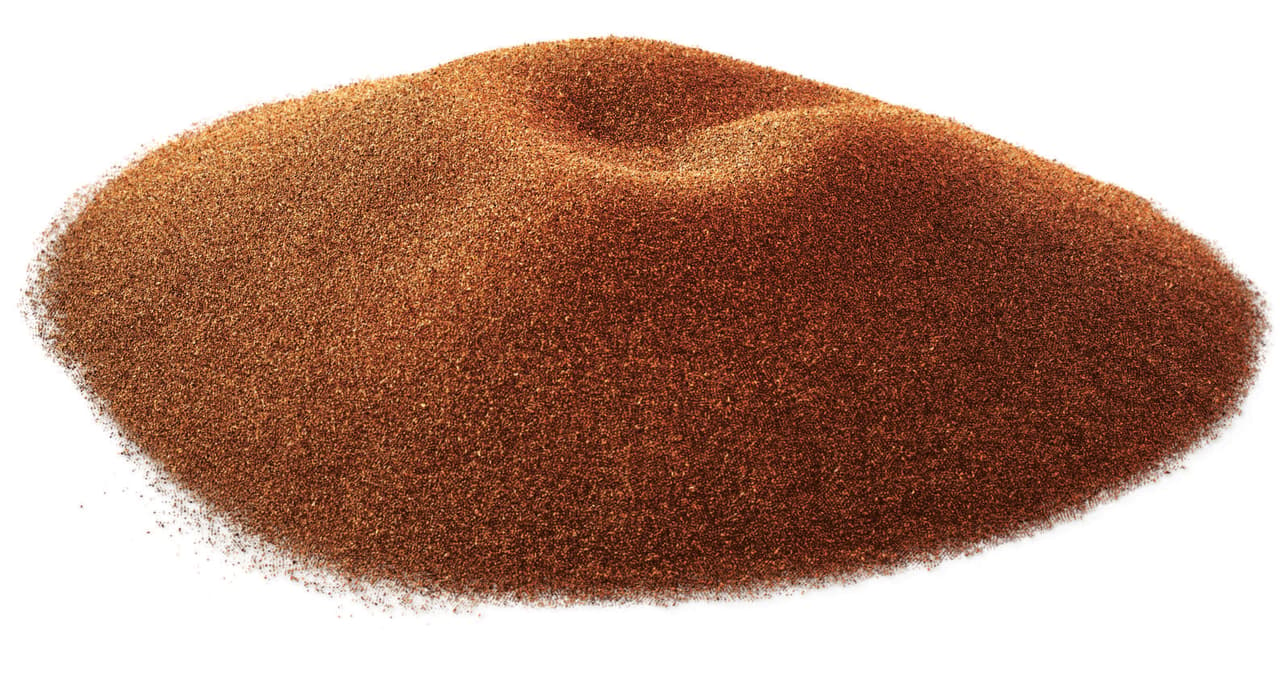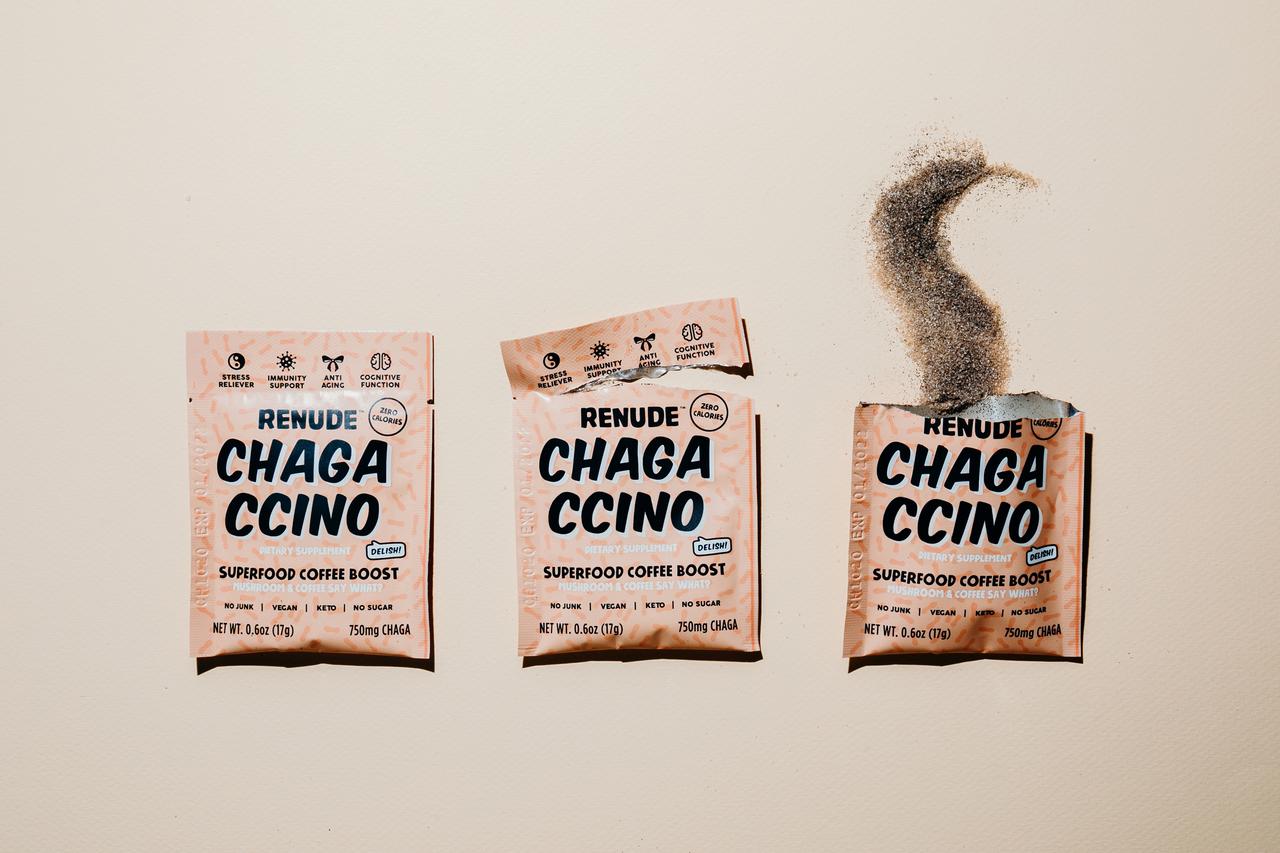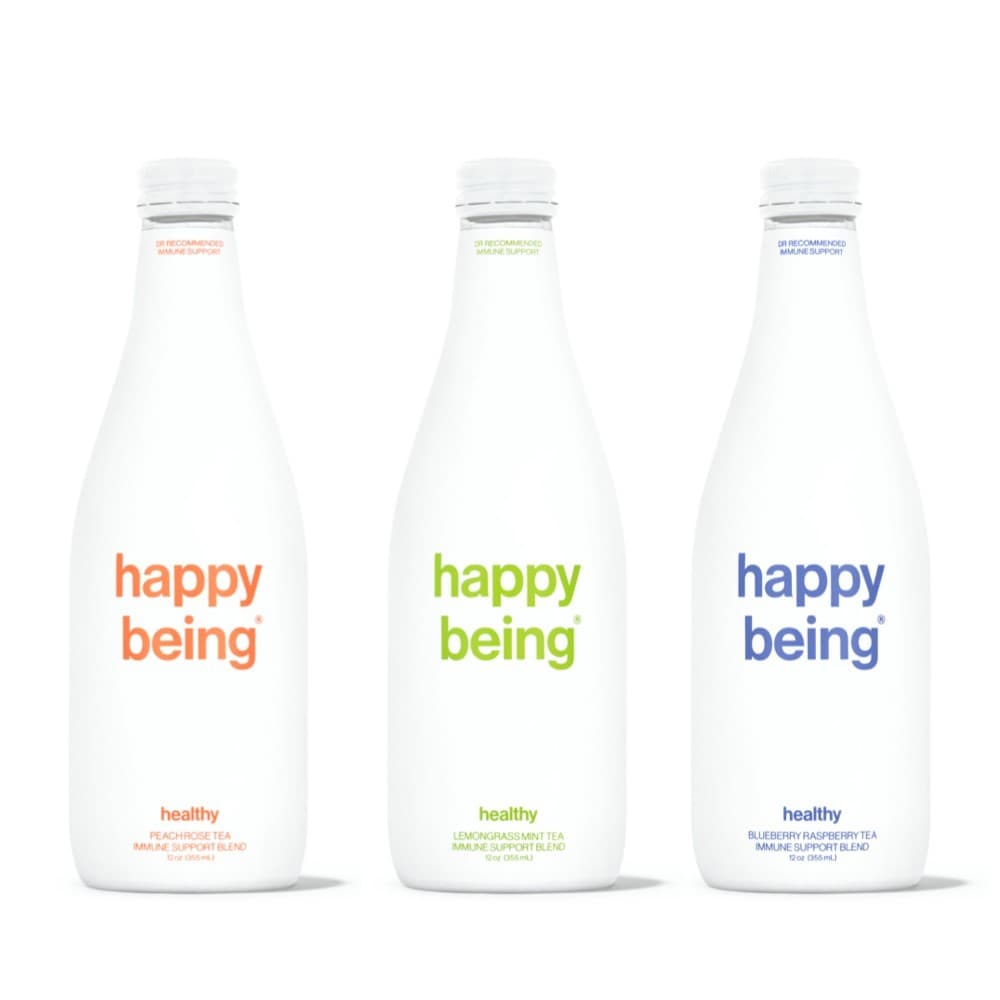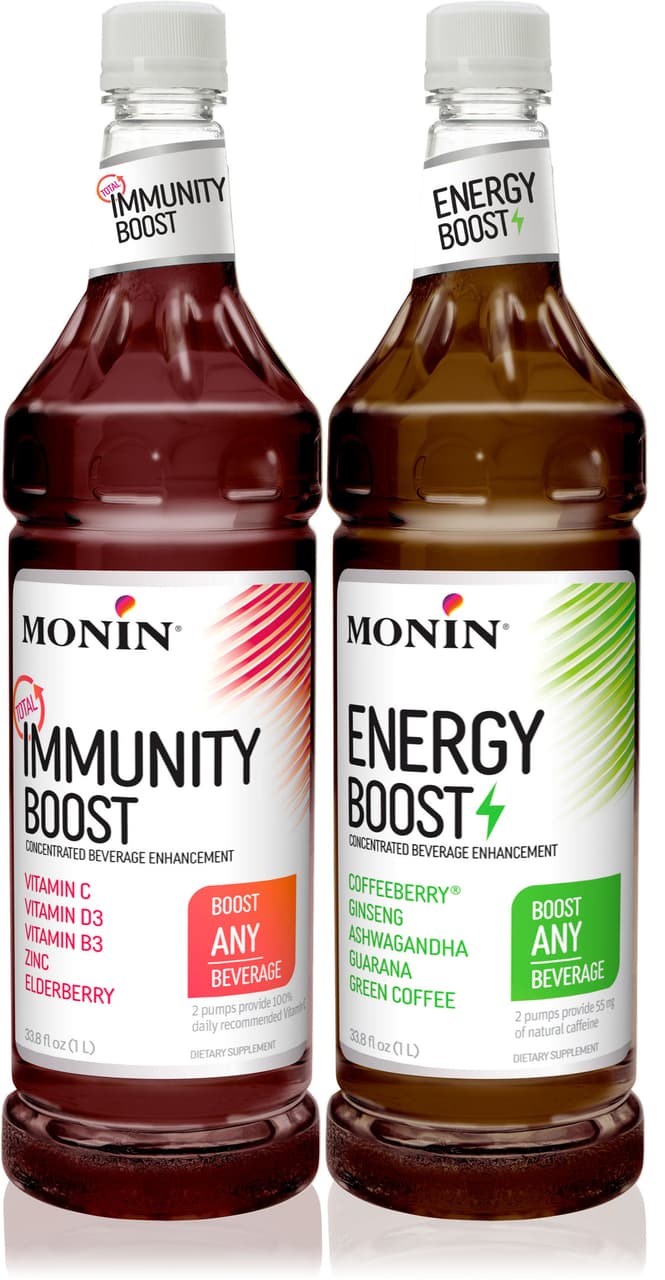Beverage
R&D
Immune health drives beverage innovation
Pandemic prompts increased citrus usage
By Sarah Graybill
Barcode is a plant-based, adaptogen-rich performance beverage. Available in Lemon Lime and Watermelon, the brand features an AR-enabled bottle cap QR code. (Image courtesy of Barcode)
Due to pandemic-level concerns this past year and a half, it seems no consumer is “immune” to exploring new ways to boost their overall health. As immune health has taken center stage, beverage brands have noticed. As a result, many are taking functional dives into formulating with ingredients shown to support a healthy immune system and overall health.
Morristown, N.J.-based PLT Health Solutions’ (PLT) June 2020 Immune Health report states that, in the 60 days prior to June 2020, consumer demand for immune health ingredients was up 6%, plant-based nutrition was up 3%, respiratory support was up 5%, cognitive health was up 3% and bone and joint health was up 1%.
Niki Kennedy, senior strategic insights and analytics manager at Glanbia Nutritionals, Chicago, notes that the current landscape can serve as a real advantage to companies that have a solid foundation of consumer understanding and a strong, science-led set of solutions.
“I don’t think we have ever seen such a strong environmental impact driving particular interest like we have with immunity,” Kennedy says. “In the past, consumer demand tended to follow innovation into particular health areas. The one difference here is that external factors, more than ingredient innovation, have driven consumer interest.”
Cashtyn Lovan, marketing manager for Cargill Health Technologies, Ankeny, Iowa, points out that immunity has been on consumers’ radar for a while. According to HealthFocus International, in 2018, 4% of consumers said they always choose food or beverages to boost the immune system, but by the fourth quarter of 2020, that number increased to 13%.

Cargill’s EpiCor postbiotic has been clinically shown to support the immune system and positively modulate the gut microbiota, says Justin Green, director of scientific affairs. (Image courtesy of Cargill)
“We saw a similar explosion in retail sales of products with an immune claim, which was up 15% from 2019 to 2020, according to Nielsen data,” Lovan says. “Today, immunity is front and center for many consumers. Research from HealthFocus International [in 2020] finds the top health benefit influencing food and beverage choices for children is ‘helps boost immune system.’”
Leslie J. Gallo, president at Artemis International, Fort Wayne, Ind., notes that as a result of the demand for immune health supporting ingredients, two of its most popular immune ingredients ― European black elderberry (ElderCraft) and Organic Acerola Vit C extracts ― have been in extremely high demand, which presented some supply challenges.
“However, even under the extreme conditions of 2020, our team has done an incredible job meeting the challenge,” Gallo says. “This past year has allowed us to open new doors and make many new connections with both existing customers and new brands as European black elderberry and its association with immune health has now reached mainstream awareness.”
Function, taste go hand-in-hand
As the demand for immune-health ingredients rises, beverage-makers have a myriad of options that will fulfill this need state. Yet, taste still remains crucial, particularly as 59% of U.S. consumers are seeking out functional beverages, but will not repurchase if the taste is off, according to a report from The Hartman Group.
In the midst of high demand for immune-supporting ingredients, some brands and ingredient suppliers are better equipped to respond than others, Glanbia’s Kennedy says.
“Consumers continue to demand high-quality ingredients and products that taste great. While there has been a focus shift in particular ingredients or products linked to immunity, consumers aren’t willing to sacrifice enjoyment for a health benefit,” she says.
Steve Fink, vice president of marketing at PLT notes that consumers have begun to apply the same decision-making strategies with immune health ingredients that they do on other nutrition and lifestyle choices, seeking out multifunctional products that support more than just one health or performance issue.
“They are looking for strong clinical science. They want plant-based, traceable, clean-label solutions, and they want sustainable products,” he says. “When supported by solid clinical science or a unique, clean-label value proposition, these products are differentiated and can help win market share.”
After spending a year lab testing, formulating and creating Chagaccino, Brandon Mizrahie, founder and CEO of Renude, says it’s now available in more than 600 coffee shops. (Image courtesy of Renude)

Yet, incorporating functional ingredients into product applications seamlessly can present challenges.
“It’s not as easy as stirring in the good-for-you ingredients,” Glanbia’s Kennedy explains. “Many applications require conditioned ingredients, such as microencapsulated ingredients, to ensure they are both enjoyable from an organoleptic standpoint but also maintain their nutrient value through processing and shelf life.”
Penny Portner, director of marketing at Bioenergy Life Science Inc. (BLS), Ham Lake, Minn., suggests that products with immune health claims can gain an advantage by having science-backed studies supporting the efficacy of ingredients.
“Products that can base their label claims on an extensive scientific dossier have an advantage because consumers are more focused than ever on whether ingredients are backed by science,” Portner says. “Consumers want innovation and brands that can deliver this by utilizing ingredients that work at the cellular level in their formulas and offer unique delivery systems/packaging choices to meet every consumer’s needs.”
Emerging innovations
Experts note that an emerging class of postbiotic ingredients are among promising new entrants in the immune space. Among these, Cargill’s EpiCor postbiotic has been clinically shown to support the immune system and positively modulate the gut microbiota, says Justin Green, director of scientific affairs at Cargill.
“To date, more than a dozen published studies show EpiCor postbiotic helps support a healthy immune system and modulate gut microbiota,” he says. “For example, in randomized, double-blind, placebo-controlled human clinical trials, EpiCor postbiotic was shown to support immune health year-round.”

“Happy Being infuses each bottle of our iced teas with a researched amount of active nutrients to support immune health,” says Co-founder Chris Conway. “Our active ingredients support natural energy, feed good gut bacteria, and lower inflammation, which otherwise are the main causes of poor immune health and chronic disease.” (Image courtesy of Happy Being)
Along with being well-suited for a wide range of food and beverage applications, EpiCor postbiotic can handle varying pH levels and has a three-year shelf life from its manufacture date, he adds.
“That versatility is one of the key advantages of postbiotics; they offer increased stability and consistency as compared to the more familiar ingredients like probiotics,” he says. “Probiotics are inherently harder to work with than postbiotics because they must remain alive ― from processing and packaging until they reach the consumer’s gut.”
Progress is being made among probiotics within beverages, with dairy-based products showcasing measurable success, according to Glanbia’s Kennedy.
“Probiotics began to make strides in many applications recently, but with increased consumer demand in immune health, highly studied dairy-based bioactives like lactoferrin and milk fat globule membrane (MFGM) have huge potential,” she explains. “For many years, these powerhouse ingredients were mainly seen in high care products like infant formula and clinical nutrition. However, we expect to see them in more mainstream products like meal replacements and nutrition bars in the future.”
Described as the “waste” of probiotics, postbiotics are byproducts of the fermentation process carried out by probiotics in the intestine. As probiotics feed on prebiotics, postbiotics are produced. Although postbiotics still are very new to the food and beverage landscape, given the science-backed benefits the ingredients provide, Cargill’s Lovan anticipates that the demand for products containing postbiotics will continue to gain traction.
“That’s why we’re leveraging Cargill’s extensive experience in formulation to make EpiCor postbiotic more accessible to more consumers by incorporating the health-supportive ingredient into teas, energy shots, sport drinks and other beverage applications,” Lovan says.
“The pandemic elevated the importance of general health and immune system support in the long term. In the near term, one might predict that immune health will align more with general health rather than its previous tendency to appear on a seasonal basis.”
— Niki Kennedy, senior strategic insights and analytics manager at Glanbia Nutritionals
In addition to gut health, PLT’s Fink notes that immune-boosting ingredients such as vitamin D and propolis are also gaining increased popularity.
“Vitamin D emerged in 2020 as a focal point for immune support science. As a result, at PLT, we have seen a dramatic increase in interest in our Earthlight Whole Food Vitamin D,” he says. “Made from sustainably grown, organic mushrooms without the use of solvents, this whole-food vitamin ingredient solution checks all the boxes that today’s consumer wants.”
He adds that PLT’s PROMUNEL Ultra Performance Propolis is rooted in an ingredient that has been used to support human health for more than 5,000 years, containing ingredient innovator B Natural’s Multi-Dynamic Extraction (M.E.D.) technology that produces an ingredient standardized to six antimicrobially bioactive polyphenols.
Monin Americas recently launched Energy Boost and Total Immunity Boost beverage syrups, which are functional solutions for beverages that add a jolt of energy and immunity support, it says. (Image courtesy of Monin Americas)

Inulin and oligofructose enter the spotlight
Along with gut health and immune-boosting ingredients from nature, experts note that blood glucose levels also influence consumers’ innate immune systems. In fact, an article by the International Diabetes Federation that looked at the association between fasting blood glucose levels and COVID-19 severity in patients without diabetes found that high blood glucose is a risk factor independent of diabetes.
On the other hand, Anke Sentko, vice president of regulatory affairs and nutrition communication at BENEO, Parsippany, N.J. points out that well-controlled blood glucose correlates significantly with improved outcomes in COVID-infected patients.
High blood glucose levels are closely linked with obesity, coronary heart disease and diabetes. One way to prevent these health challenges is through diet and choosing the right ingredients to reduce blood glucose response, Sentko explains. COVID-19 also brought “fresh focus to maintaining good health and immunity,” he adds.
He notes that being soluble and having a pleasant and mild taste, inulin and oligofructose are easily incorporated into an extensive range of food or beverage products, while maintaining or even improving taste and texture, and increasing fiber intake/incorporating fiber. For example, in cereal bars BENEO’s prebiotic chicory root fiber adds fiber and contributes to digestive health while helping to reduce sugar and calories.
“Additionally, chicory root fiber acts as a humectant, helping bars and other products remain soft over time,” he says. “Oligofructose can also be used in conjunction with high-intensity sweeteners to help mask undesired off-tastes. Inulin contributes to body and creamy mouthfeel, making it particularly suitable for fiber-enriched beverages like meal-replacement beverages, coffee drinks, smoothies or even chocolate shakes.”
In years past, ingredients like vitamin C were the main immune-supporting ingredients being fortified into foods and beverages, but now solutions like botanicals are being used to add immune functionality, says Artemis’ Vice President of Science and Research Melanie Bush.
“There is a heightened awareness that ‘immune health’ is influenced by many factors and different phytochemicals, macronutrients,” she says. “And prebiotic compounds from botanicals have a place in next-level functional foods and beverages.”
Among emerging ingredients, chaga, a mushroom with adaptogenic properties, is experiencing increased interest. Brandon Mizrahie, founder and CEO of Renude, which makes Chagaccino, a chaga-based latte blend, notes that chaga has a high antioxidant count for immune support. In fact, he says its antioxidant levels are similar to more than three pounds of blueberries and 30 pounds of carrots per serving.
“[Chaga] also blows away açaí, which is known as one of the highest immunity foods available,” he adds. “Health and wellness products with fun branding and a great taste [are gaining popularity]. Medicinal mushrooms, adaptogens, probiotic, fermented, clean, keto, plant based, low sugar and vegan products are all gaining momentum.”
Immune-boosting beverages go next level
When it comes to the ingredients with “oomph,” today’s functional beverage ingredients are proving they can be more than meets the label.
“Labels are being scrutinized now in a way they were not previously,” Artemis’ Gallo says. “[Consumers are] looking at what the brands are claiming, reading the supplement and nutrition facts to see if they are meeting the ‘buzz’ topics right now: vitamins and minerals, fiber, protein, added sugar, and percent of RDI.”
However, experts note that consumers want ingredients with proven effects, rather than just marketing fluff.
“We expect to continue to see heightened interest in immune health — but we believe consumers will be looking for products backed by scientific research,” Cargill’s Lovan says. “We can offer that and are optimistic about the future of postbiotic ingredients, including EpiCor postbiotic.”
BLS’s Portner notes that as the human body needs healthy mitochondria and overall cellular health to drive a healthy immune response, ingredients and formulations that work at a cellular level and target cellular health will rise to the top.
“Let’s be honest, when our immune system is booming, we’re feeling great from the inside-out. Innovations that enable consumers to feel that difference will rise to the top,” she says. “Utilizing proven ingredients such as [BLS-made] Bioenergy Ribose or RiaGev is a smart move because they both work at the cellular level and deliver noticeable benefits.”
Glanbia’s Kennedy notes that concerns over immunity are not going away anytime soon.
“The pandemic elevated the importance of general health and immune system support in the long term,” she says. “In the near term, one might predict that immune health will align more with general health rather than its previous tendency to appear on a seasonal basis.”
Kennedy also notes that because of the ways in which immune health will likely play into general health, consumers will want products they can regularly work into their routines and enjoy.
“Beverages are the perfect application for both of these attributes,” she says. “Developing beverages that taste good enough to enjoy regularly, while also providing ongoing health and immune benefits, will be the sweet spot for many brands.”
Unsurprisingly, products containing anything artificial (flavors, colors, sweeteners) are falling out of favor with consumers, Artemis’ Gallo notes.
“We will see more and more products on the shelves with the words ‘added,’ ‘fortified with,’ and ‘immune’ called out in some fashion,” she says. “Whether they are genuinely beneficial will be the next topic for discussion.”
Renude’s Mizrahie agrees, stating that even big retail players are taking notice and acting accordingly.
“People count calories, but they should be counting chemicals,” he says. “There’s a reason Amazon bought Whole Foods when it could have purchased almost any company. There’s a movement toward clean and functional, and we fit into both categories.”
Based on Artemis’ Gallo’s expertise, she advises that brands use ingredients that offer immune benefits and that the consumer can relate to. For example, she notes that berries are easy to formulate with and contain high levels of polyphenols. Strawberries are one example of a fruit high in vitamin C, and black elderberry has a track record of immune support as well, experts note.
“We all know the benefits of fruits and vegetables, yet they are not high on the list for consumers in their grab-and-go lives except for a smoothie-on-the-run,” she says. “Brands are challenged with making grab-and-go, healthy-for-you beverages with relatable, good-for-you ingredients. Look for whole fruit and juice powders based on your formulation needs, and add nutrients consumers need.”
Gallo’s final words of advice to brands formulating for immune health are to “be unique, be bold, and be authentic in developing your next wave of functional beverages.” BI
Tate & Lyle honored for sustainable initiatives
Tate & Lyle
5450 Prairie Stone Pkwy, Hoffman Estates, Ill. 60192; 847/396-7500
www.tateandlyle.com
Hoffman Estates, Ill.-based Tate & Lyle announced being named a Project Spotlight Honoree of Field to Market: The Alliance for Sustainable Agriculture, at its 2021 bi-annual Plenary and General Assembly Meeting. The Plenary and General Assembly celebrates farmers, advisers and innovative collaborations driving real progress in sustainability and regenerative agriculture, the company says. Tate & Lyle, one of 12 honorees to be celebrated, was recognized by the alliance’s Awards and Recognition Committee for its sustainable agriculture program, first established in 2018. The program remains Field to Market’s largest registered Continuous Improvement Project to date. Demonstrating progress in scaling conservation on the ground, the Tate & Lyle Sustainable Corn Innovation Project was recognized for its support of more than 1,700 farmers on 1.5 million acres of sustainable agriculture in the U.S., equivalent to the corn Tate & Lyle buys globally each year. Of those enrolled in the program, nearly 90% are sharing data with the value chain. The program helps farmers to more effectively target and measure the impact of conservation practices.
August 2021 | bevindustry.com
